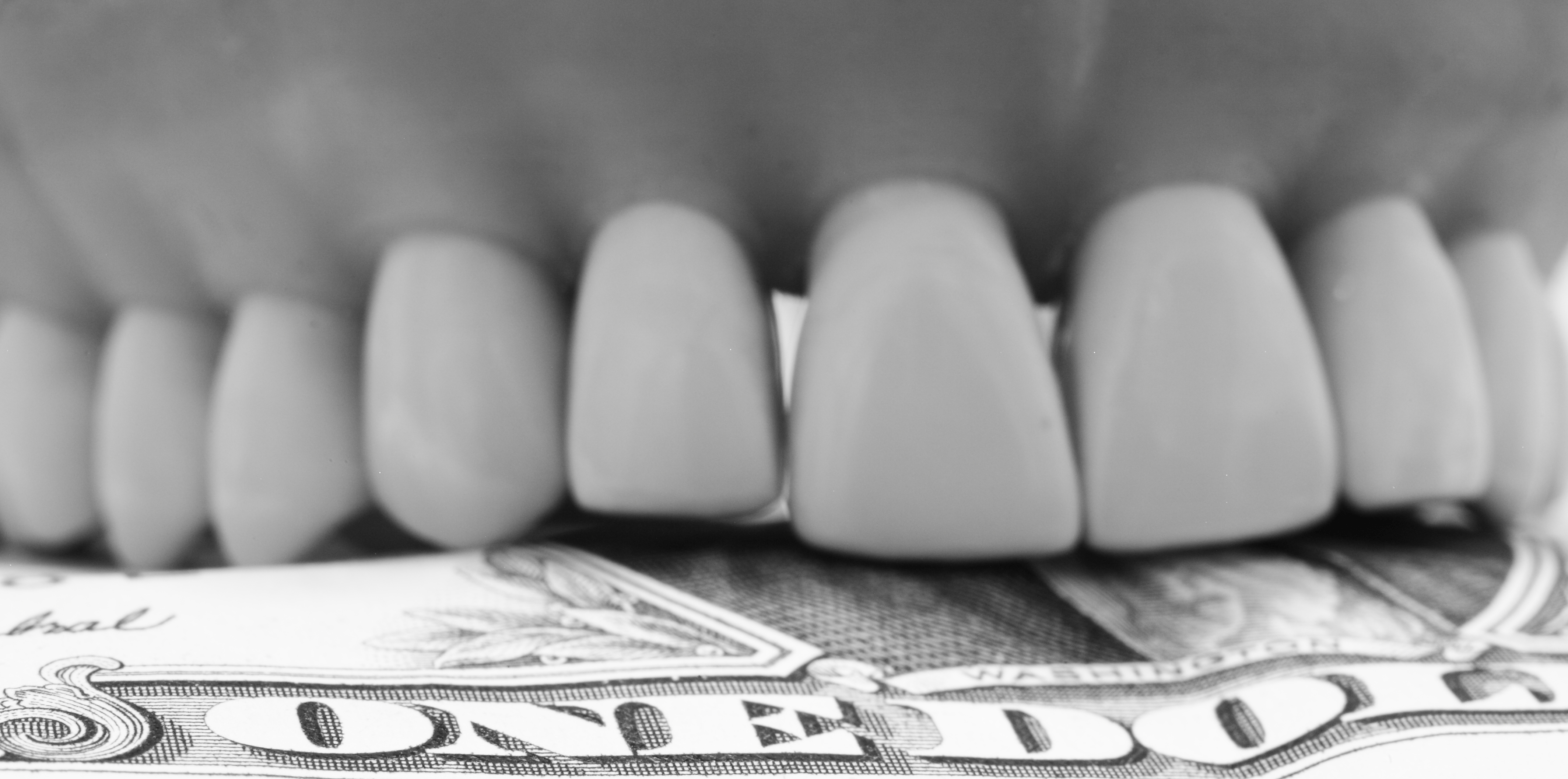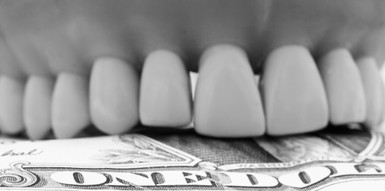Posted by Sierra Soleimani on Jun 28th 2018
Bruxism on a Budget

With some dental work costing up to $12,000, treating chronic bruxism can be a costly pain. For many who grind their teeth, going to the dentist is not affordable and often put aside while the problem persists. That doesn't mean you have to let the pain and grinding go untreated. Here are some affordable ways to address bruxism.
Dentist Visit
After your (possibly frantic) Google search, seeing a dentist is the next step. The internet has a wealth of information to point you in the right direction, but ultimately, it’s best to talk to a dental professional. They have the knowledge and equipment to correctly assess the damage and provide treatment that will prevent further dental problems. If the first thought to pop into your head just now was “I can’t afford that, I don’t even have dental insurance”, don’t worry, you are not alone and you can still get care. Here are some options:
- Hospital emergency room - If you are in excruciating pain or think you might have an infection, the ER will patch you up. The average cost is $749, which is not ideal, but the long term damage will be even more costly.
- Community Dental Clinic - The American Dental Association (ADA) has a map that lists free/low-cost clinics.
- Dental schools - You’ll probably spend more time the the chair so that the supervising dentist can check the students’ work, but the prices are very affordable
- Charitable Dentistry - United Way, A Mission of Mercy, Dentistry From The Heart, Health Resources and Services Administration
- “Molar City”, Mexico - With high dental costs in America, a dental tourism industry has boomed in Los Algodones, Mexico. They have a concentration of 350 dental offices offering legit low cost dental work.
Underlying Issue
The best way to treat bruxism is to treat of the underlying issue (your dentist will probably mention this). Teeth grinding is usually a symptom of stress, sleep apnea, medication, and more.
The most common cause is stress and anxiety. Mental well-being and self-care can make a huge difference in your sleeping habits and overall quality of life. Here are some resources to economic treatments:
- Therapy - You don’t need to have a diagnosed mental condition to justify seeing a mental professional. In fact, EVERYONE could benefit from therapy.
- Organizations like 211 and NAMI will help you find free and affordable mental health care.
- 1-800-273-8255 is the suicide lifeline number. I hope it never comes to that for you, but JUST in case, I’m putting it out there.
- Organization - Being organized can do wonders for stress and there are so many resources on the topic. Here are a few quick tips that you can incorporate today.
- Nutrition - What you consume plays a big roll in how you feel. Certain foods have nutrients that can help reduce stress and aid sleep.
Protect Your Teeth
If you know you grind your teeth, awake or asleep, it's a good idea to start wear a mouthguard to prevent further damage on your teeth. It will not stop the grinding and it will not stop the jaw pain, but it will protect your teeth until you get treatment for the underlying issue.
While custom fit night guards from the dentist can be costly, there are over-the-counter options. All mouthguards vary in size, quality, and price, so it’s important to do research.
Pain Relief
If you’re a chronic grinder, you’re most likely in in a lot of pain, especially in the temporomandibular joint (TMJ). Bruxism can also cause severe headaches and neck pain. Here are suggestions for TMJ and other bruxism-related pain relief:
- Jaw Exercises
- Anti-inflammatory vitamins or foods
- Essential Oils
- Over the counter medication, such as Acetaminophen (Tylenol) and non-steroid drugs
- Acupuncture
Luckily, bruxism is a dental problem that can be easily treated and prevented. When caught early enough, the dental damage (and cost) is minimal and can be addressed immediately. It might be more of a challenge to find treatment and resources, but you can afford healthy teeth. Soon, dreading the dentist will be a thought of the past for you!

